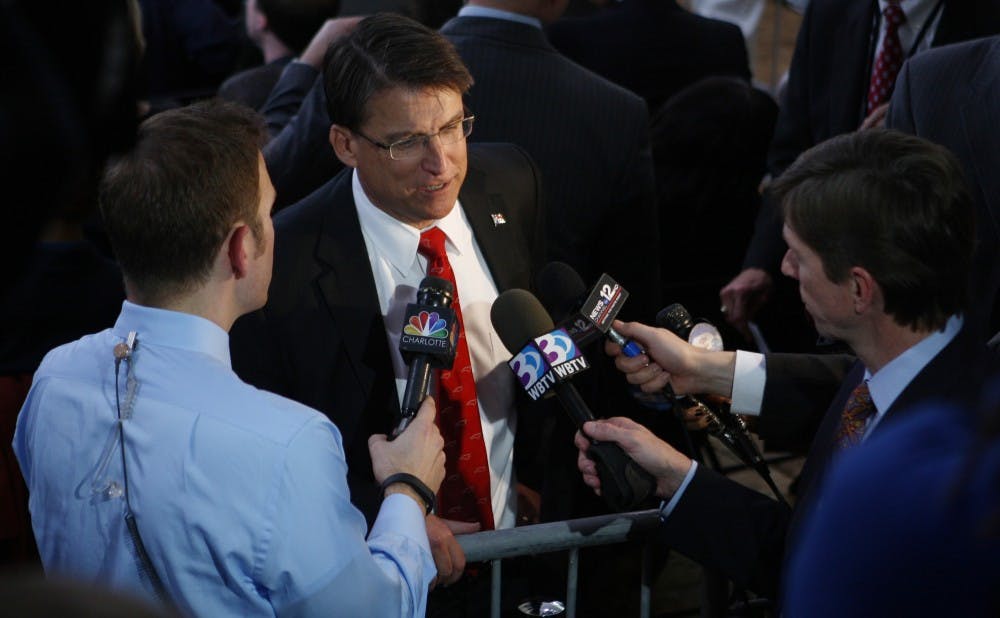Gov. Pat McCrory has taken initiative to pay public school teachers more, but some educators say he is not going far enough to retain teachers.
Earlier this month, Gov. Pat McCrory announced his intentions to raise starting teacher pay by 14 percent. Critics have since highlighted the need for a new incentive program for teachers to get Master's degrees and an across-the-board pay raise for teachers, including tenured professors. Both of these features were absent from the new McCrory plan. Durham officials believe that public education in North Carolina is suffering as a result of government inaction.
“Teacher retention is critical for student success because research shows that teachers continue to gain skills as they are in the classroom, and we need to compensate them fairly and retain them,” said Natalie Byer, a member of the Durham Board of Education.
Mark Jewell, vice president of the North Carolina Association of Educators, noted that this would impact low-performing schools particularly negatively as students at these schools tend to learn best when the faculty is a team who have worked together for numerous years.
Byer said she encourages the General Assembly to reassess their decision to strip teachers of Master's degree benefits, a change which came from a 2013 law that also eliminated teacher tenure in North Carolina. She said that teacher pay has been frozen in North Carolina since 2008 with only a 1.2 percent increase, and the McCrory measure would only help a limited amount.
Minnie Forte-Brown, vice chair of Durham Public Schools, said she equates the public school system to a business—as teachers advance, they should be paid more.
“In order for us to have the most competent, the best-trained and the best-equipped teaching staff, we need to reward and compensate teachers who have the discipline to achieve higher education,” Forte-Brown said.
Giving a raise to beginning teachers and not to tenured teachers will create a divide between the two in schools, Jewell said. He noted that North Carolina will lose its competitiveness for teachers in the Southeast.
“The teachers are feeling very unappreciated, very devalued—especially tenured teachers,” Jewell said.
The 2013 law that eliminated teacher tenure in North Carolina also requires school principals to select only 25 percent of teachers to receive a 4-year contract. As a result, teachers are leaving public schools in North Carolina at a faster rate, said N.C. House Representative Paul Luebke of Durham County.
“Failure to provide a raise for senior-level teachers, while providing a raise for newcomers, will reduce morale further… and lead some teachers to leave N.C. for teaching jobs in other states, or to leave public school teaching and look for a different job,” Luebke wrote in an email Friday.
Jewell suggested simplifying the salary scale into 15 steps that outline the multiple ways teachers can go up in pay scale. These steps could be in 5-year increments along with certain criteria, like attaining a Master's degree or National Board Certification.
Luebke noted that McCrory's priorities would not likely be manifest as actual legislation, other than the new teachers' pay initiative. Rather, he said that the lack of a pay increase for experienced teachers would hurt the Republicans at the ballot box.
“North Carolina has taken an extreme turn backwards,” Jewell said. “That’s why North Carolina is at the bottom of the barrel in terms of teacher pay.”
Get The Chronicle straight to your inbox
Signup for our weekly newsletter. Cancel at any time.

